You are here
New Releases
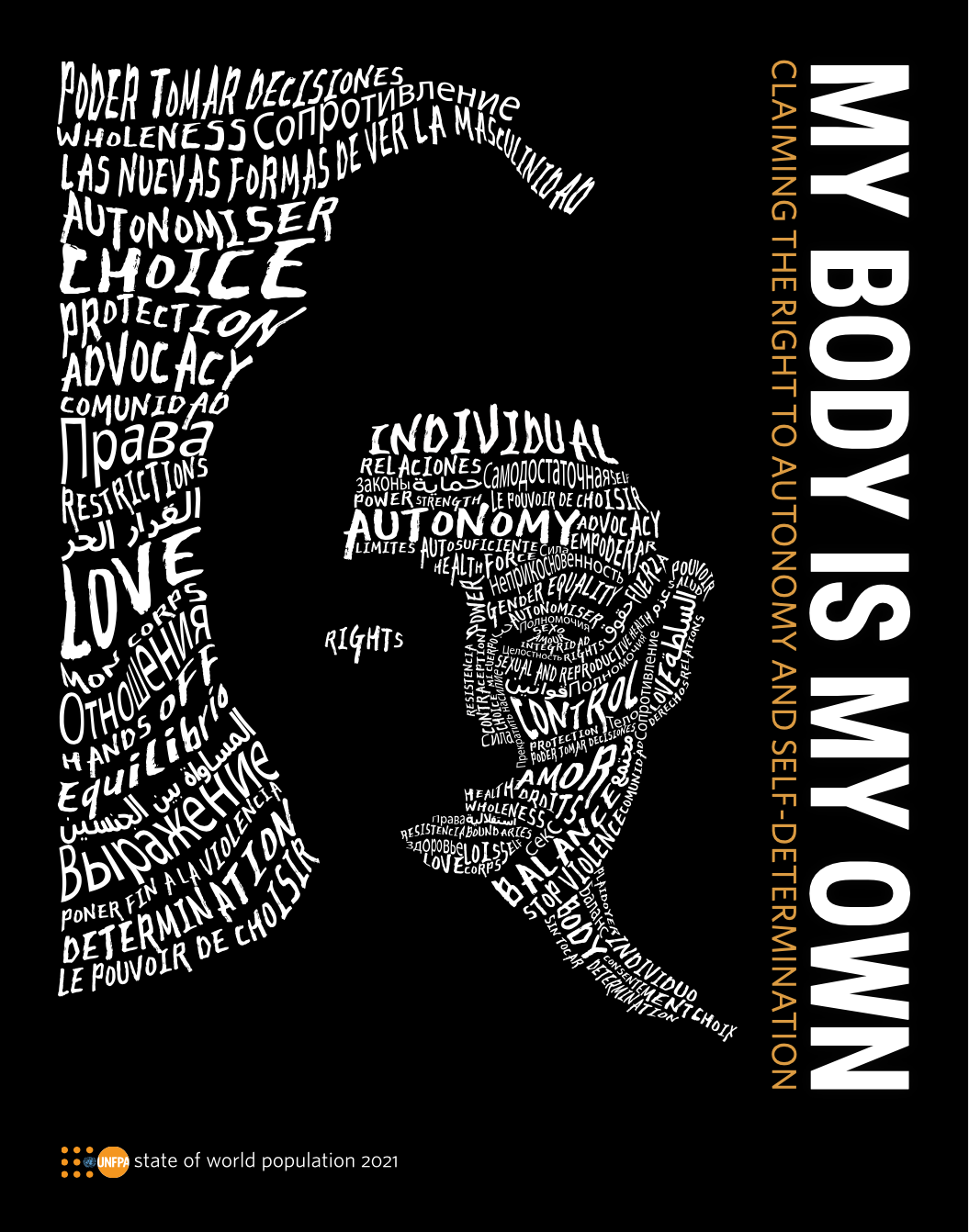
My Body Is My Own
We have the inherent right to choose what we do with our body, to ensure its protection and care, to pursue its expression. The quality of our lives depends on it. In fact, our lives themselves depend on it.
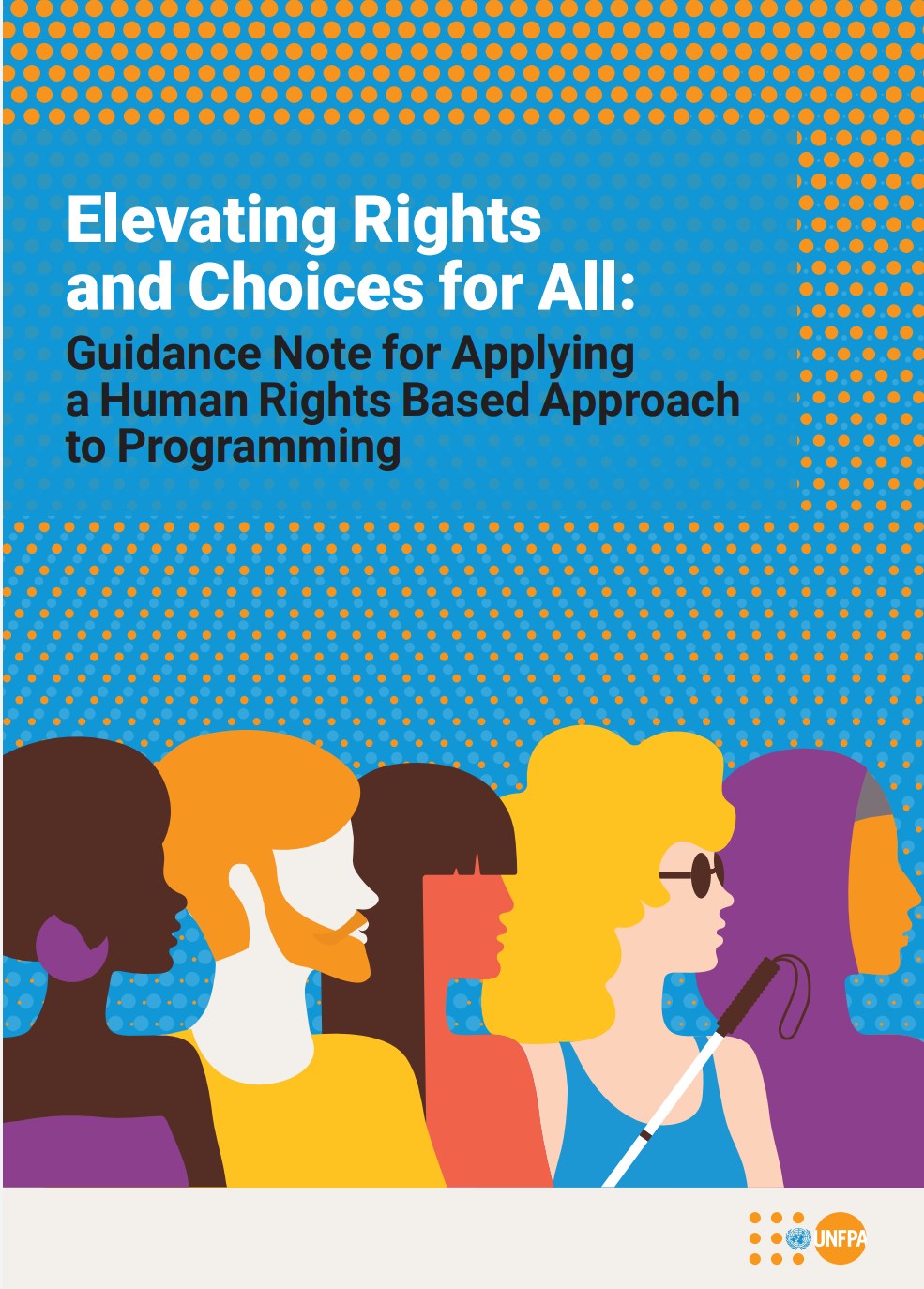
Guidance Note for Applying a Human Rights-Based Approach to Programming in UNFPA
Elevating Rights and Choices for All: Guidance Note for Applying a Human Rights Based Approach to Programming provides a road map for institutionalizing a human rights-based approach in the work of UNFPA.
It responds to the key challenges and opportunities for advancing the rights-based dimensions of the ICPD today. In doing so, the Guidance Note also supports UNFPA's response to the Secretary-General's 2020 “Call to Action for Human Rights”, which calls for human rights to permeate the work of all the UN system.
Built around three key components for action: i) Equality & Non-discrimination, ii) Quality and iii) Accountability, the Guidance Note provides UNFPA with a clear, strategic, and comprehensive direction for its efforts to elevate the centrality of rights and choices and achieve the transformative rights-based vision of the ICPD.
The Guidance Note provides an explanation of each one of these components, how they relate to UNFPA’s mandate, and outlines key programming steps that can be taken to advance them. It also provides illustrative examples of applying a HRBA across UNFPA’s three transformative results: zero unmet need for contraception; zero preventable maternal deaths; and zero gender-based violence and harmful practices.
It aims to inspire and guide UNFPA staff in their efforts to operatioalise the human rights based vision of the ICPD.
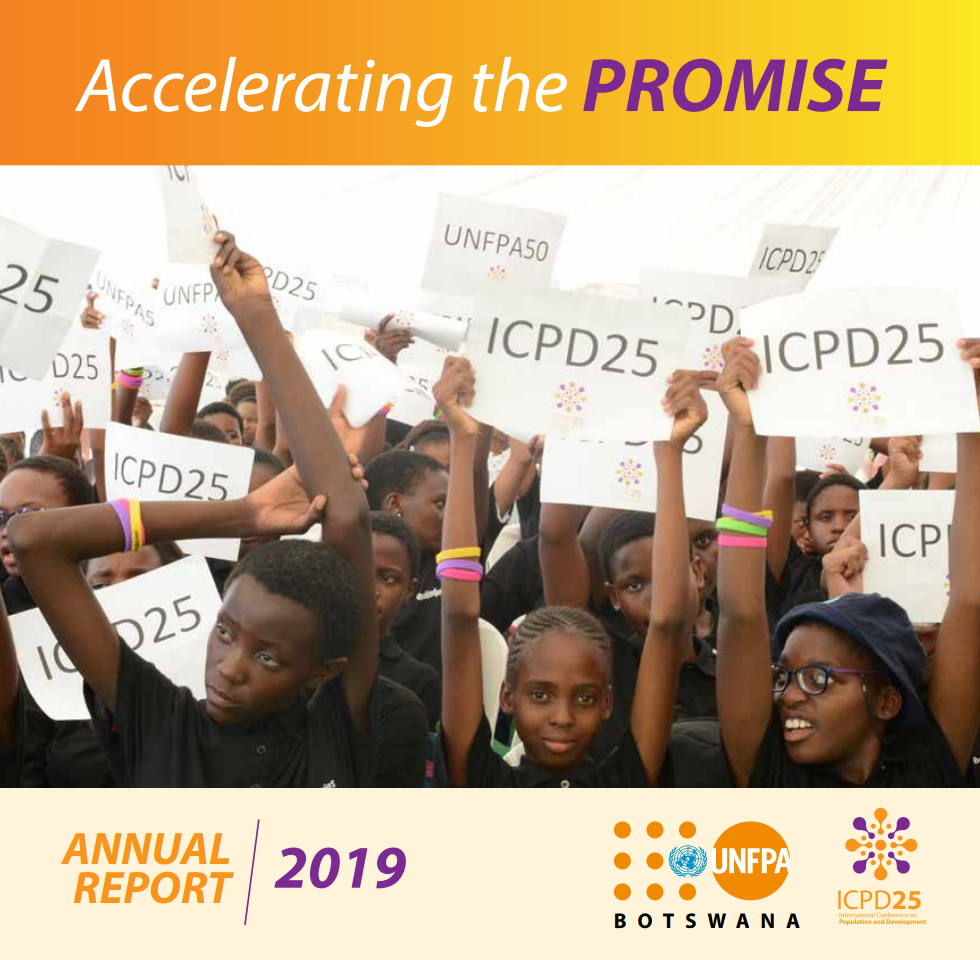
Accelerating the promise
The year 2019 was a special one for UNFPA as we marked the 25th anniversary of the 1994 International Conference on Population and Development (ICPD) in Cairo and 50 years of UNFPA! This double anniversary created a platform to spotlight sexual and reproductive health and rights as the world reflected on the progress towards the fulfilment of the Cairo Promise.. In 1994, at the ICPD conference – crucial resolutions were made to ensure there was improved access to sexual and reproductive health services. The Programme of Action (POA) recognised that reproductive health and rights, as well as women's empowerment and gender equality, are the cornerstones of development. This conference is what has continued to drive UNFPA's work over the years.
In Botswana, UNFPA has through various strategic partnerships contributed to the results and achievements detailed in this 2019 annual report. We will carry these partnerships forward in 2020 and beyond to ensure universal access to sexual reproductive health services. Although progress was recorded in 2019 – there is still a lot of unfinished business in various areas that requires our collective action to ensure universal access to sexual and reproductive health.

2021 Population & Housing Census Project Document
Since independence in 1966, Botswana has successfully conducted decennial censuses from 1971 through 2011. The country’s political stability and economic resilience have been supportive of the census exercise and the results which have not had any major shortcomings. In a significant move within the context of regional integration, the Southern African Development Community (SADC) decided to harmonize the census process of its member states from the 2000 round of censuses. Botswana has responded positively, from the 2001 census and beyond to this regional requirement. The 2001 census, being the country’s fourth census since independence was the first in the edition of the SADC-wide rounds of censuses.
Statistics Botswana in collaboration with, and support from the United Nations Fund for Population Activities (UNFPA), embarked on the development of a comprehensive Census Project Document (CPD) that will guide the 2021 Population and Housing Census (PHC) undertaking.
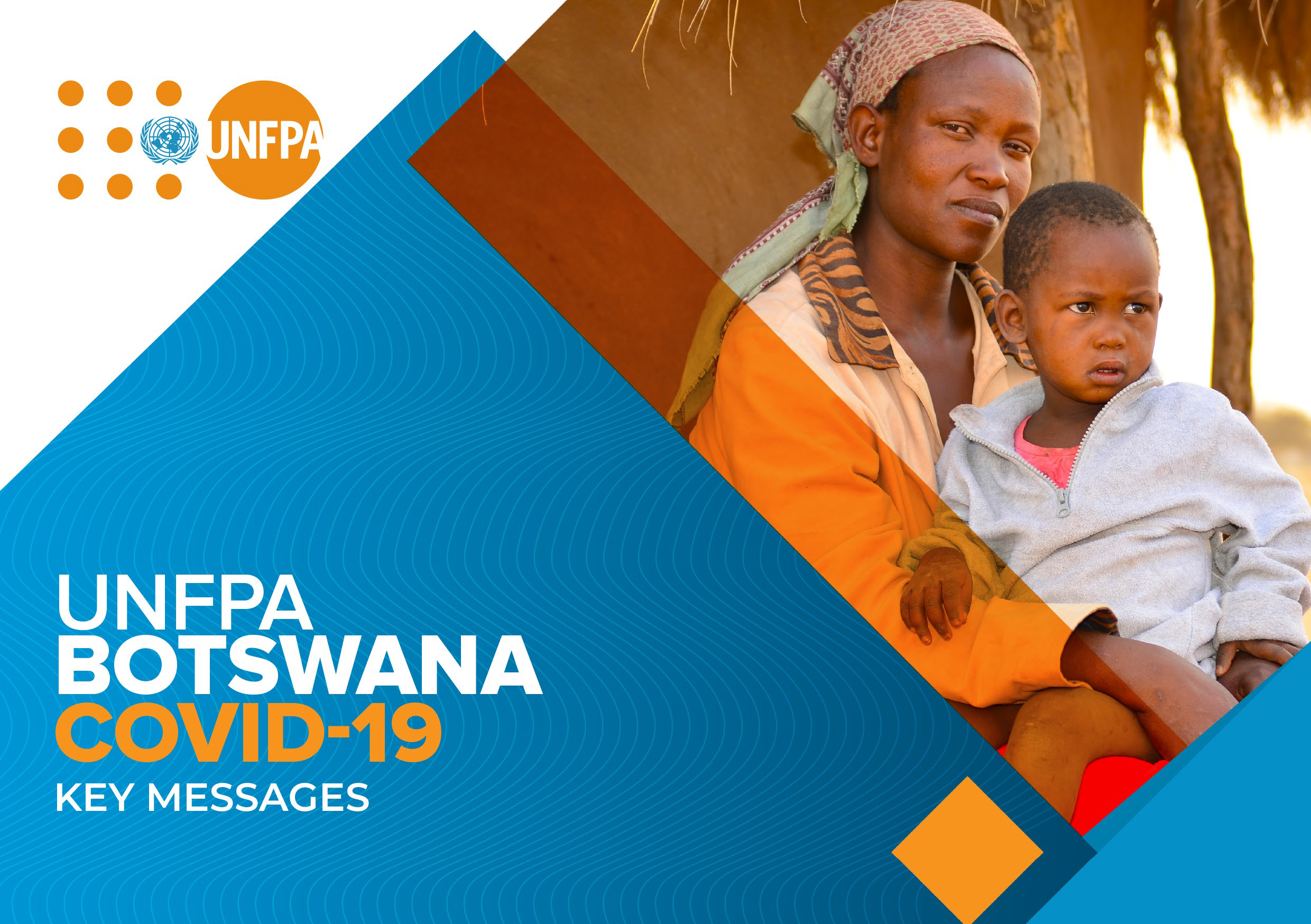
COVID-19 Key Messages Booklet
The outbreak of the COVID-19 pandemic has caused and continues to wreak havoc in our world. This booklet is a compilation of key messages from UN agencies, the Government of Botswana and Ministry of Health and Wellness, contextualized to suit the local context. The purpose is to use this booklet to increase public understanding of COVID-19, including efforts to prevent and respond to gender-based violence and secure sexual and reproductive health and rights.
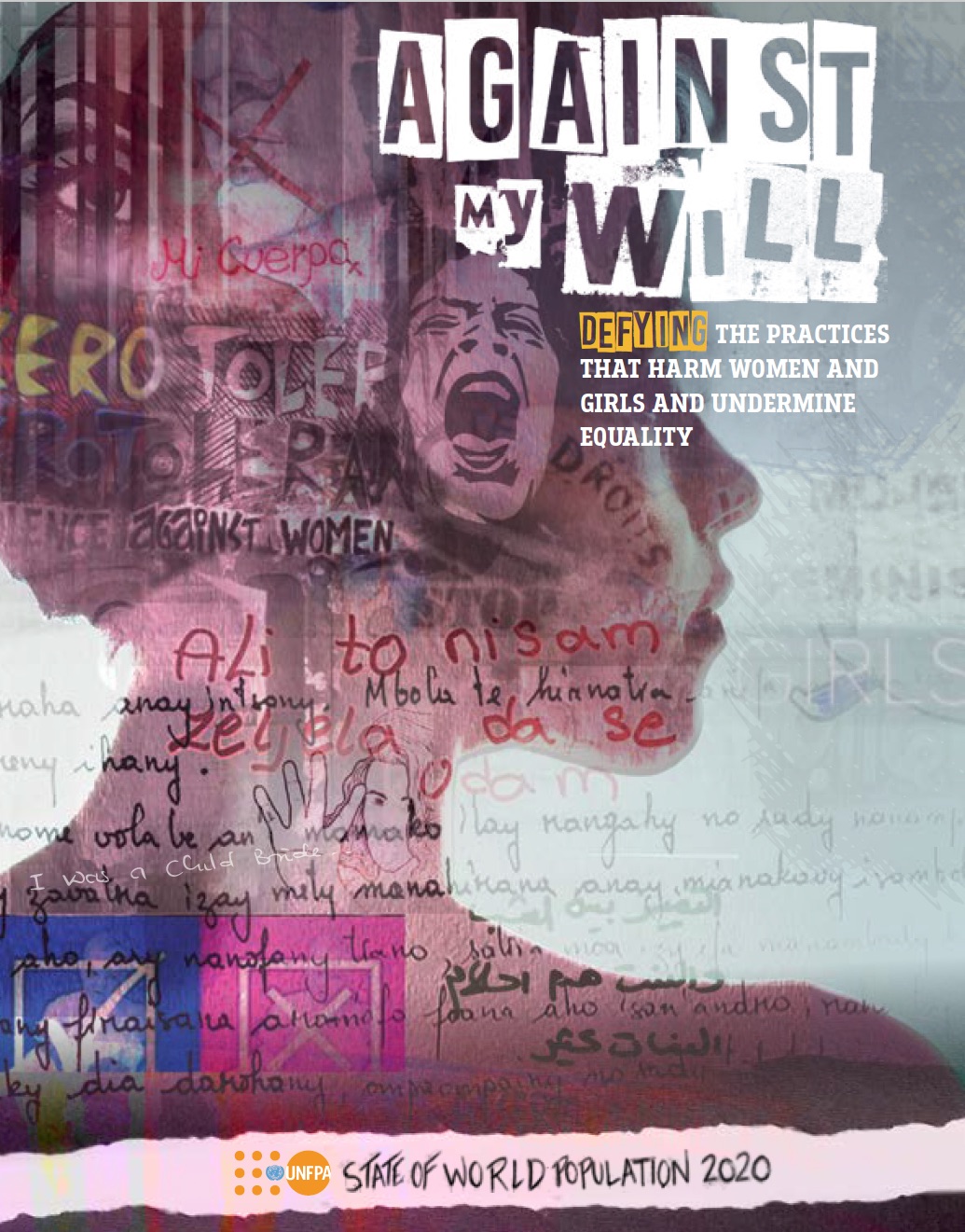
Against My Will
Every day, hundreds of thousands of girls around the world are subjected to practices that harm them physically or psychologically, or both, with the full knowledge and consent of their families, friends and communities.
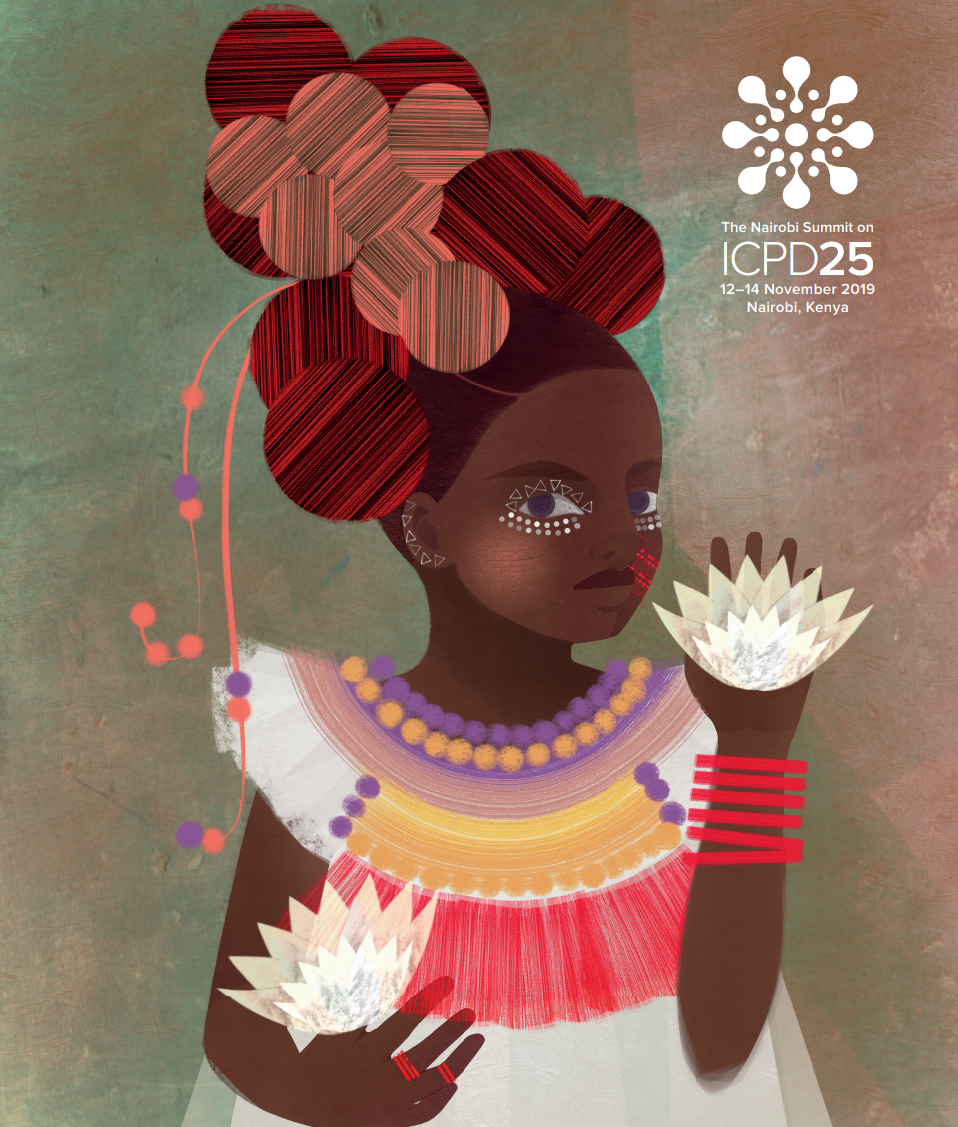
Nairobi Summit on ICPD25 Report
This report captures the unique essence, substance and outcomes of the Nairobi Summit on ICPD25: Accelerating the Promise, co-convened by the governments of Kenya, Denmark and UNFPA on 12-14 November, 2019.
It is launched at a particularly challenging time for sexual and reproductive health and rights worldwide. As countries around the world grapple with the COVID-19 pandemic, we see just how critical the issues highlighted at the Summit are.
Months after the Summit, countries are already taking steps to make good on their Nairobi commitments. We see increasing calls to prioritize the rights, health and safety of women and girls, including the recent joint ministerial statement on behalf of 59 countries calling for the protection of sexual and reproductive health and rights and promoting gender-responsiveness in the COVID-19 crisis.
The Nairobi Summit set a clear direction for the path ahead, and our forward march continues. It’s time to finally deliver concrete results for women and girls, and ensure that no one is left behind in the final push to 2030 and achieving the Sustainable Development Goals.
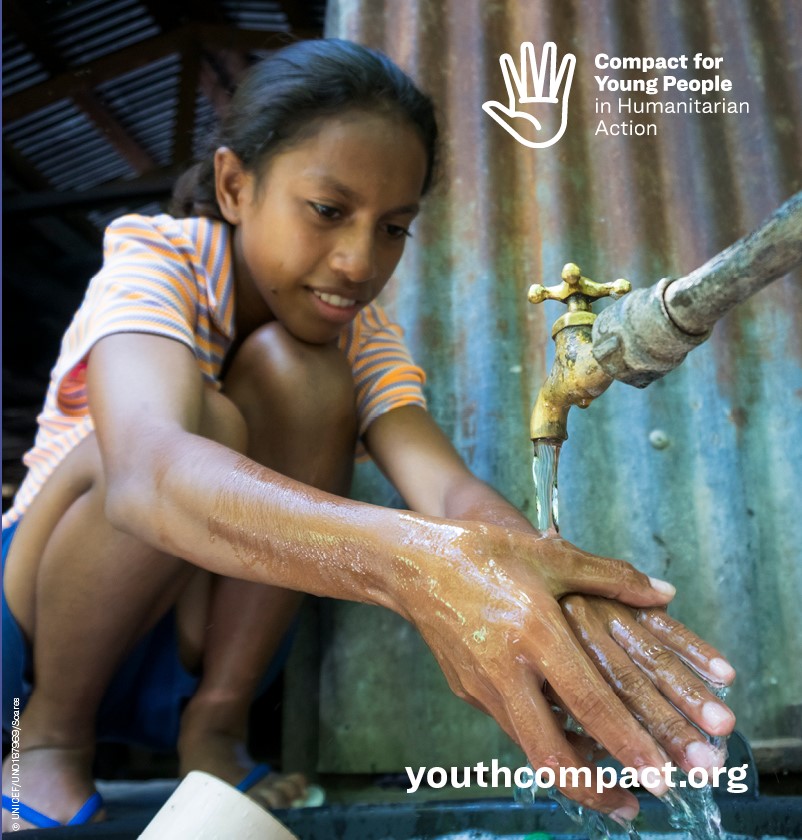
COVID-19: Working with and for young people
This guidance note is meant to assist humanitarian actors, youth-led organizations, and young people themselves across sectors, working at local, country, regional, and global levels in their response to the novel coronavirus pandemic. It begins diagnostically, exploring the impacts of coronavirus disease (COVID-19) on young people. It then proposes a series of actions that practitioners and young people can take to ensure that COVID-19 preparedness, response plans and actions, are youth-inclusive and youth-focused – with and for young people. Recommendations are structured around the five key actions of the Compact for Young People in Humanitarian Action: services, participation, capacity, resources, and data. Where available, the recommended actions are accompanied by resources and concrete examples, which can inform approaches and support implementation. The Compact will iteratively update this document as the pandemic unfolds in the coming weeks and months.
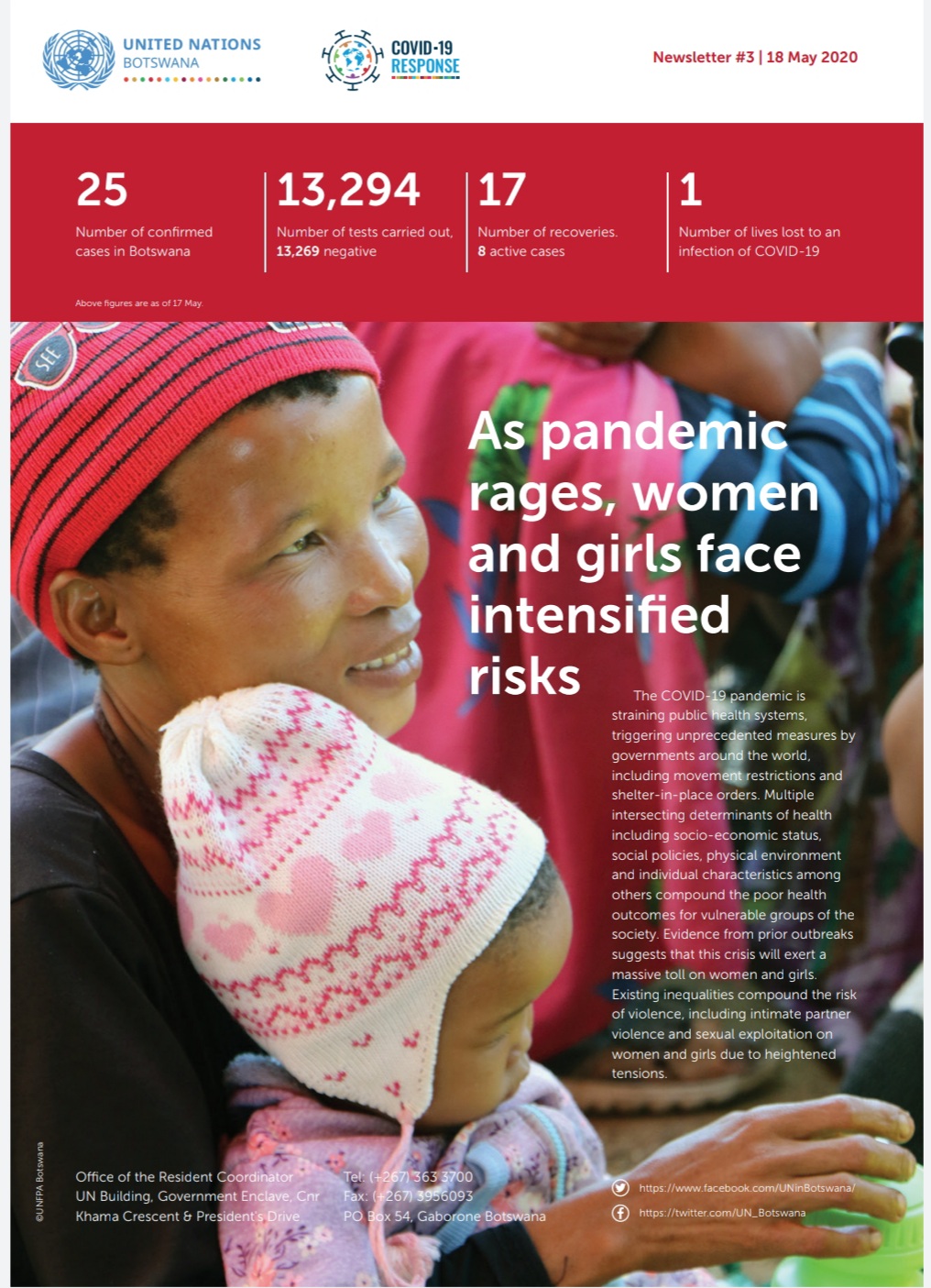
As the pandemic rages, women and girls face intensified risks
The COVID-19 pandemic is straining public health systems, triggering unprecedented measures by governments around the world, including movement restrictions and shelter-in-place orders. Multiple intersecting determinants of health including socio-economic status, social policies, physical environment and individual characteristics among others compound the poor health outcomes for vulnerable groups of the society. Evidence from prior outbreaks suggests that this crisis will exert a massive toll on women and girls. Existing inequalities compound the risk of violence, including intimate partner violence and sexual exploitation on women and girls due to heightened tensions.
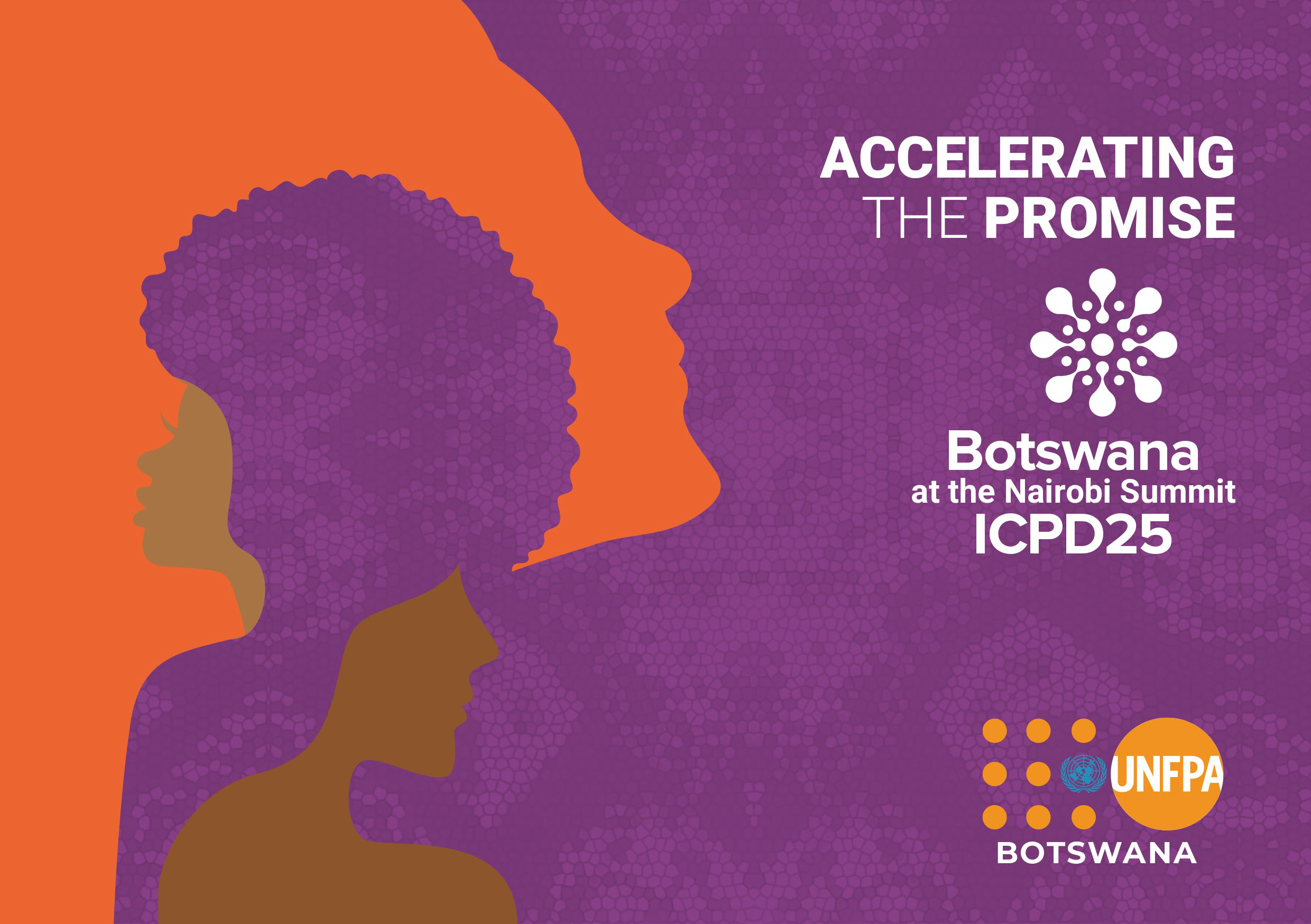
Botswana's ICPD25 Commitment Booklet
The year 2019 was a special one for UNFPA as we marked the 25th anniversary of the 1994 International Conference on Population and Development (ICPD) in Cairo, and 50 years of UNFPA! The ICPD25 Conference discussed the unfinished business of the ICPD, marking 25 years since I79 countries, including Botswana, adopted the Programme of Action that recognised the relationships between population, development and individual well-being. For Botswana, the 2019 Nairobi Summit mapped out a new 10-year vision, with fresh commitments on sustainable development. The leader of the Botswana delegation, Mr. Richard Matlhare- Coordinator of National AIDS and Health Promotion Agency shared Botswana’'s 4 commitments for the ICPD25 as highlighted in the Commitment Booklet.